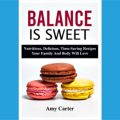Most of us spend a great many hours improving our job skills. We study the latest technology, management trends, or industry leaders. However, many of the same people who work hard to stay on top of their careers will complain that parenthood is unchallenging. Some parents who stay at home with their children all day fuss that their minds are turning to mush and some parents who are employed spend far less time focusing on making parenthood intellectually challenging than they do on their “paid” jobs. For too many, parenthood is just something we do after our real jobs end each day.
Parenthood is a career. Family life is a first career and your income-producing job is your second career. As your first career, it can’t possibly be unchallenging. When it’s taken seriously and treated like a real career, parenthood is one of the most intellectually stimulating and emotionally rewarding careers you’ll ever have.
“The primary function of a Latter-day Saint home is to insure that every member of the family works to create the climate and conditions in which all can grow toward perfection. For parents, this requires a dedication of time and energy far beyond the mere providing of their children’s physical needs. For children, this means controlling the natural tendency toward selfishness.
Do you spend as much time making your family and home successful as you do in pursuing social and professional success? Are you devoting your best creative energy to the most important unit in society—the family? Or is your relationship with your family merely a routine, unrewarding part of life? Parent and child must be willing to put family responsibilities first in order to achieve family exaltation. (Joseph Fielding Smith, “Message from the First Presidency,” Ensign, Jan 1971, inside front cover–3)
The first step is to get past thinking of it as mere robotic actions of feeding, bathing, and entertaining. There is so much to learn about children, food, and the mind. When you try to keep up with the latest developments in those things you do for your children in the same way you keep up with the latest developments in your professional field, you’ll find your mind is quite challenged.
Babies are exhausting and demanding and sometimes it seems like we have no time left to stimulate the mind. However, babies like to be rocked and rocking babies is a great time to work on your mind. As I rocked my babies to sleep, I read grown-up books aloud in a soothing voice. Toddlers and preschoolers like to be read to as they fall asleep. Start with a picture book or two. Then read a chapter from a children’s novel, even if you think your child is too young—you’ll be surprised by how soon they are listening. In the meantime, you’re learning children’s literature and preparing for when they are old enough for novels. Finish off with a grown up book. My children fell asleep listening to everything from the Bible to a science book on neurology. That last book is your study hour.
This means you can find the time to read a book on infant development, how children learn to read, or ways to get children physically active. What about nutrition? New developments are being made every day in the field of nutrition.
When you’re with your children, do more than just bathe and feed them. Don’t always hand them toys to play with. Sometimes you need to play with them. When you play with children, you can help them learn new ways to play. You model good social skills because they aren’t going to get socialized by playing with other children. They get socialized by having adult role models who actually know what to do in social situations. You show them how to use their imaginations or how to solve challenging intellectual problems.
Don’t just read stories to your child. Go the extra step and talk about those stories. Ask questions. “Do you think James made the right choice?” “What would you do if this happened to you?” What do you think will happen next?” Then extend the story by doing puppet shows or family plays about them, sometimes even changing the ending to one more satisfying.
What are your children studying in school? Create a learning home by doing a little learning on that subject yourself, so you can talk to your children about their studies. Plan family outings or other experiences around those topics. For instance, if your child is learning about electricity, read some books together about famous inventors who worked with electricity. Do some experiments. Take a field trip. Why let the school have all the fun? Helping your children learn and helping them to love learning is a highlight of raising a child. Don’t let the schools get all the joy of saying, “I taught him that.”
Children become passionate about a subject only after digging in, beyond the basics. Generally, schools only cover the basics so it’s up to you to do the digging deep until you find the exciting parts of a subject. In addition, when the entire family is learning about the subject, you have shared experiences and passions. Yes, there really are families that chatter about the Middle Ages over the dinner table. Homeschoolers do it all the time, but you don’t have to be a homeschooler to study with your children.
Parents are busy and it isn’t easy to find time to go beyond the basics. It requires solid time management and it often requires us to decide on our priorities. We tend to spend the most time on those things we consider the most important. How essential is it really to stay late at the office or to bring work home? How badly do you need that promotion? If it isn’t essential to living a reasonably secure life, it may not be important enough to sacrifice family time for. Families that put family first are content with fewer possessions and consider themselves better “paid” by spending more time on their family job. Of course, you have to earn a living, but there are many ways to do that and each person has to figure out the best way to do it and to decide how much time their job really requires.
Your family career doesn’t have to be expensive or require exhaustive planning. Treating it as a career just means giving it equal importance in practice, and not just in lip service. Simple unplanned moments can have as much impact as the complex, well-planned ones.
“In choosing how we spend time as a family, we should be careful not to exhaust our available time on things that are merely good and leave little time for that which is better or best. A friend took his young family on a series of summer vacation trips, including visits to memorable historic sites. At the end of the summer he asked his teenage son which of these good summer activities he enjoyed most. The father learned from the reply, and so did those he told of it. “The thing I liked best this summer,” the boy replied, “was the night you and I laid on the lawn and looked at the stars and talked.” Super family activities may be good for children, but they are not always better than one-on-one time with a loving parent.” (Dallin H. Oaks, “Good, Better, Best,” Ensign, Nov 2007, 104–8)
You’ll never have a career that matters more than the one you carry out in your own home. As my children have grown and moved on, I don’t regret putting my writing career on hold for eight years for them. I do, however, regret all the non-family things I sometimes let get in the way of family time. Not one of those things that seemed so important at the time, even the me-time parents long for, mattered in the long run. We can’t take most of the world’s events with us when we die, but we can take our families.
Being given a family is a sacred responsibility and no matter what else is going on in our lives, it should always be our primary career. Our other career is important because we have a responsibility to financially care for our families, but it should be given its proper place in our lives and not become life itself.
About Terrie Lynn Bittner
The late Terrie Lynn Bittner—beloved wife, mother, grandmother, and friend—was the author of two homeschooling books and numerous articles, including several that appeared in Latter-day Saint magazines. She became a member of the Church at the age of 17 and began sharing her faith online in 1992.







I wonder why people think that parenthood is unchallenging. I am not yet a parent (and still single,) but most parents I have spoken with would disagree. I do understand why people may say that parenthood is not intellectually challenging, however. Certain activities like cooking food or cleaning the bathroom may seem rather mindless, but while I am in college, I enjoy cleaning my apartment more than doing homework. (Granted, I may become bored of cleaning if I was to do it all day, but right now, I would rather be a busy homemaker than a busy college student.) This article rings home to me. I am attending college and preparing for a possible career because I know I may need to support myself and perhaps my family one day, but my dream career is to be a wife and a mother. The suggestions in this blog make that career seem more exciting!
I appreciate your article. Another way that I feel a personal connection is that you are a writer and you put your career on hold for your children. I also want to be a writer. But your article has strengthened my conviction of the importance of being a wife and a mother over having a career.
Thank you! I know many parents who manage a writing career, but I’m not good at juggling a lot of things. I did it from four to six A.M. so I wouldn’t take time away from my family, but once I started homeschooling them, I needed that time for preparation. Since I couldn’t effectively juggle so many things, I set my priorities. Of course, I know a few great moms who juggle homeschooling and writing with very large families, and never take time from their children, so it’s an individual thing, I guess. The important thing is that when it’s time to cut something, we don’t cut family time. We have to know ourselves and our own capabilities and have our priorities firmly in place.
I really appreciated your blog. I’m not a parent yet, and will not be for a little while, but reading this blog made me even more excited to be a parent.
I plan on going to law school, and if I don’t end making the bar I want to work for the FBI, and both professions are fairly time consuming. But this article helped me to find inspiration and give me ideas on how to keep up with parenting skills, how to make time count, and how to do it in a way that is best for my family.
I was raised in a homeschool family, so I am definitely an advocate for that route and plan on homeschooling my own kids, but I especially appreciated the comments about learning and going into depth. Public schools seem to be degrading in quality every year, and if we want our children to be truly educated, we are going to need to create a home-based learning atmosphere, even if we do not go all the way and start homeschooling. Family discussions and discussing books after they’re read will solidify and sink down into children’s hearts the eternal principles taught in many classic books, books like the Virginian that are fun and exciting even for rowdy boys but that teach great morals, courage, and how to stick up for yourself.
As well, teaching skills such as independent thought, analytical thinking, and problem solving is vitally important in this day and age. If the rising generation is supposed to be a leader generation, we need to build our children into the great leaders now. We need to instill in them a sense of liberty and greatness, integrity, wisdom, courage, virtue and diplomacy, and give them the tools to carve out a life in an increasingly dangerous world.
Even more so, I loved your ideas about multi-tasking, and your over-all exhortations to just take time for the family, to make it more than just something you do after you are home from work. Obviously we are all too aware of the adversary’s attacks on the family, and if we don’t make time to protect and build up the family it falls. But if the family falls so does freedom and civilization, if you take the warnings present in “1984” and “Brave New World” seriously.
So thank you for your blog. It did not fall upon deaf ears, and I will definitely remember this as I take my place in the parenting world.
Jonathan, thank you for your comments. I homeschooled my children and it’s great to see the first generations of homeschoolers growing up and showing their wisdom. I love that you’re already giving thought to the type of parent you want to be–it’s the best way to be sure you’ll do it well.
I loved my visit to your blog, and I really enjoyed this article. I am a SAHM to 5-month old, so I appreciated your ideas for making ‘mindless’ tasks mindful and meaningful.
Thankyou Terrie, for your blog. I have been struggling for a while as a parent to identify with my role and what I am supposed to do. Your blog has brought some clarity into my life and I really appreciate it.
One of the main concerns that I have as a parent is my sons ongoing education. I liked your comments regarding expanding on what they are doing at school and to be a part of their education.
Your right about their education being general at school. There are so many specifics to expand on and teach them. I also liked what you had to say about reading them to sleep and switching to books that you enjoy reading as they drift off. I love it. I do spend some time reading to them but rarely do it at bed time. I tend to put them to bed and then start thinking its my time now.
The time that we have is not that long. I believe that reading to them at bed time will have an impact on them and will help the bond. I think it will also help them to appreciate my interests in reading as well. I can’t say that I read a lot but I do have a number of books of interest that I do like to find the time to read. I have never thought about reading them to my boys though.
I think from now on I am prepared to make a commitment to read to my boys for half and hour to an hour a night. It will help them settle down. I don’t want to do it every night though, I don’t want to make them dependant on me for going to sleep. I will start out with once or twice a week and then go from there.
As much as I am committed to my sons, I still need time out at the end of the day to my self. As I start work at 2am in the morning so I like to get to sleep by 9:30pm at the latest. Our boys are generally in bed to go to sleep at 7pm. So I could get them into bed by 6:30 and read them off to sleep. Yep I’m going to take that on.
I look forward to and really like the idea of reading my books of interest that I think would bore them. I also have to admit that I love the attention, your idea would give me a captive audience. I like that 😉
I have some books on sales that I would love to read to them as well as lots of books about business. I love educating my self on cooking as well.
I love your idea of reading the books that I have a personal interest in.
Terrie, thank-you so much for sharing. This is my first time visiting LDSblogs.com and your article was the very first one that I read. You have made my visit a pleasure.